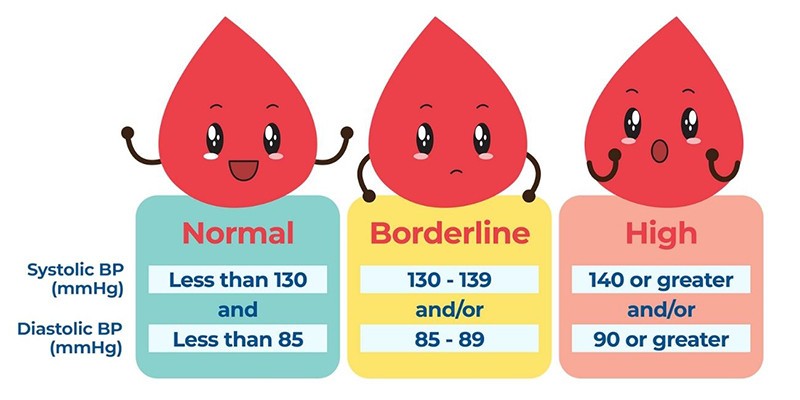
High blood pressure, also known as hypertension, is a common but often misunderstood condition. Despite its prevalence, there are many misconceptions about what high blood pressure is, how it can be managed, and the impact it has on health. Here are five common misconceptions about high blood pressure:
1. High Blood Pressure Isn't a Big Deal
Many people underestimate the seriousness of high blood pressure, thinking it's a minor issue. However, hypertension is a significant health concern that can lead to severe complications if left untreated. It is a major risk factor for heart disease, stroke, kidney damage, and other life-threatening conditions. The damage caused by high blood pressure occurs gradually and can silently harm the body's organs over time, making early detection and management crucial.

2. High Blood Pressure Can't be Prevented
There's a common belief that high blood pressure is inevitable, especially as one ages or if there's a family history of hypertension. While genetics can play a role, lifestyle choices are equally, if not more, influential. Regular physical activity, a healthy diet low in salt and rich in fruits and vegetables, maintaining a healthy weight, and avoiding tobacco and excessive alcohol can significantly reduce the risk of developing high blood pressure. Prevention is possible through proactive and consistent lifestyle changes.

3. It's OK as Long as One Number is Normal
Blood pressure readings consist of two numbers: systolic (the upper number) and diastolic (the lower number). Some people think that if one of these numbers is normal, their overall blood pressure is fine. This is a dangerous misconception. Both numbers are important, and elevated levels of either can indicate a risk for health problems. Isolated systolic or diastolic hypertension can both lead to complications, so it's essential to monitor and manage both numbers.

4. High Blood Pressure is About Treatment
While managing high blood pressure often involves medication, it's not solely about taking pills. Effective management also includes lifestyle modifications, regular monitoring, and sometimes addressing underlying conditions such as diabetes or sleep apnea. Patients need a comprehensive approach that combines medical treatment with healthy habits. This holistic strategy can help control blood pressure more effectively and reduce the risk of related health issues.
5. High Blood Pressure Treatment Doesn't Work
Some people believe that once diagnosed with high blood pressure, nothing can be done to control it. This misconception can lead to fatalistic attitudes and neglect of treatment. In reality, high blood pressure can be effectively managed with a combination of medications and lifestyle changes. Advances in medicine have provided a range of treatment options that can be tailored to an individual's needs. With proper adherence to prescribed treatments and healthy lifestyle choices, many people successfully control their blood pressure and lead healthy lives.

High blood pressure is a serious condition that requires attention and proper management. Understanding the misconceptions surrounding it is vital for effective prevention and treatment. By acknowledging its severity, recognizing the role of lifestyle in prevention, understanding the importance of both blood pressure numbers, adopting a comprehensive management approach, and believing in the efficacy of treatment, individuals can take proactive steps towards maintaining their health and preventing the complications associated with hypertension.
Subscribe means that you have read and agree to the Privacy Policy.
Subscribe means that you have read and agree to the Privacy Policy.
Copyright © Shenzhen Pango Medical Electronics Co.,Ltd, Ltd. All Rights Reserved.